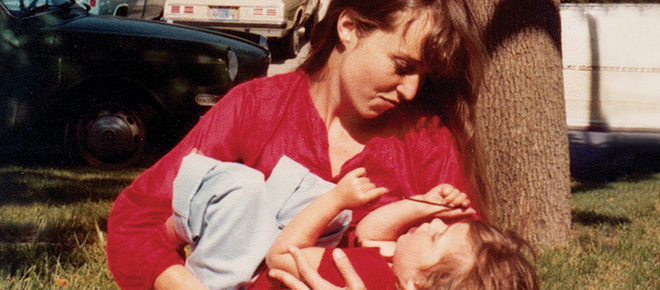Steve Jobs: Genius, and lousy father
Chrisann Brennan says her new book is ‘an opportunity to tell the truth about me and Steve’
Share

The publicist promoting Chrisann Brennan’s memoir about Steve Jobs delivers the disappointing news: “It’s safe to say that this interview will not happen,” reads the email. Brennan is the artist Jobs fell in love with when he was a teenager living in his parents’ home. She remembers his bright-red electric typewriter and the tidiness of his bedroom closet. The two were high school sweethearts, dropping acid, living together, converting to Zen Buddhism.
Brennan’s rebuffing of the press when other authors might box kangaroos in the ring if the spectacle sold books comes as no surprise. She’s been punished in the past whenever she’s co-operated with the media. The most recent occasion was in 2011, after Jobs’s death, when she granted permission to Rolling Stone to print a piece about her and Steve. The move got her uninvited to Jobs’s memorial service at Stanford University.
Before that, she’d submitted to a three-hour interview with Time and the consequence was nationwide humiliation. The year was 1983, not quite four years after she’d given birth to Lisa, Jobs’s daughter, though, bizarrely, he was still denying paternity. Time elected to make Jobs its Man of the Year, interviewing Steve and members of his inner circle. Brennan agreed to talk to journalist Michael Moritz. As she explains in her new book, The Bite in the Apple, “I thought of this as an opportunity to tell the truth about me and Steve.” When the article appeared, Jobs was quoted as saying, “28 per cent of the male population in the United States could be the father.”
Brennan was aghast. “I was hit so hard that three days went by where I was hardly able to speak or focus,” she writes.
Brennan and Jobs were living together when she learned of the pregnancy. They’d rented a four-bedroom rancher in Cupertino, Calif., close to the original Apple office, sharing the space with Steve’s college buddy and No. 12 Apple employee Daniel Kottke. “Steve selected the bedroom in the front of the house,” writes Brennan. “It was like him to want to position himself as the captain of the ship—in front. He was always vying for that superior position. I chose the master bedroom and settled in.” Later, Jobs changed his mind. “Steve literally picked me up and moved everything I owned and took over the master bedroom. He’d finally realized I had the better deal.”
She describes a relationship with lovemaking that was sublime, but him as a tyrant and even despotic. They were in the living room of the Presidio Drive rancher when she told him she was pregnant. “Steve’s face turned ugly. He gave me a fiery look, then rushed out of the house without a word.”
According to Brennan, Jobs began spreading the rumour that she was sleeping around, and he was sterile and couldn’t possibly be the father. “It served Steve’s purpose to appear as the victim of a crazy woman to whom he’d had a slight attraction, but never loved.” At one point, he accused her of trying to steal his genes. “He’d begun to think of himself as a high-end commodity.”
As Brennan’s unborn child grew, so did her embarrassment at work. She quit her job at Apple and went on welfare. “I am sure that (Steve) was advised that, if there was a legal case, it would not have looked good for him to have given me money.”
Brennan retreated to give birth at the farmhouse of Jobs’s close friend, Robert Friedland, whose apple orchard in Oregon was the inspiration for the company name. Three days later, Jobs arrived, and he and Brennan named the baby Lisa. Back in California, Jobs christened a new computer the Lisa, but would later tell Time magazine he’d named the computer after an old girlfriend. “He had no old girlfriend named Lisa. Now he was just lying,” writes Brennan.
A state-ordered DNA test eventually proved Jobs’s paternity, and he would come to love and support his daughter. For years, Brennan kept quiet about her relationship with Jobs, explaining in the book, “I was operating out of a mother’s instinct, because I lacked the ability to do battle with Steve and all the moneyed interests that surrounded him. I learned to lay low and to study what was so right—and so profoundly wrong—with him, for over 30 years.”